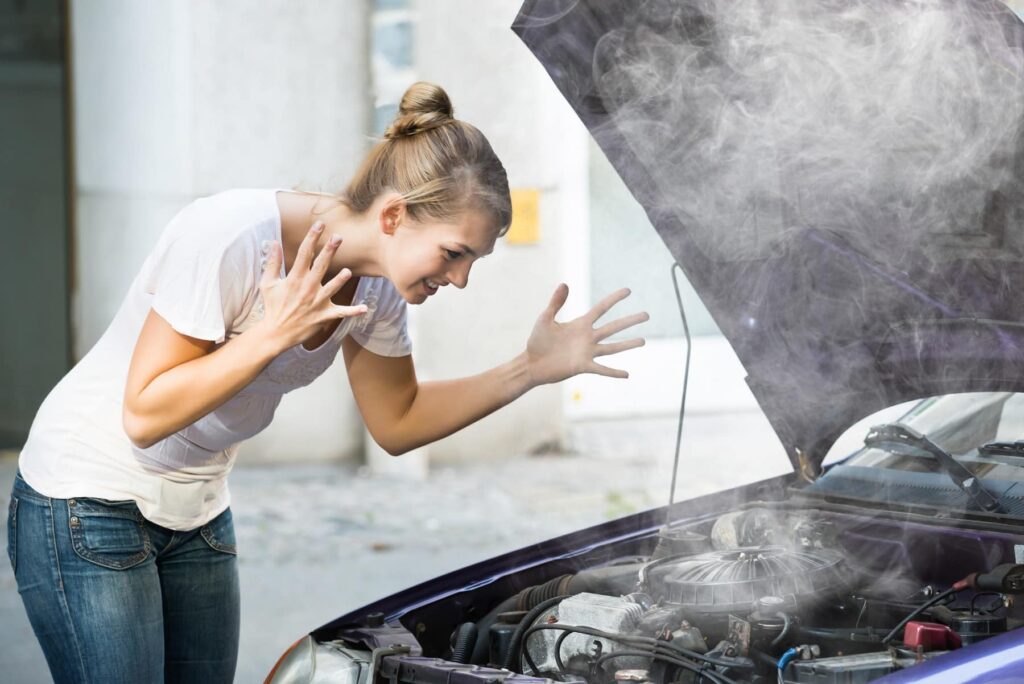Owning a Jeep is all about embracing adventure and enjoying the freedom of off-road exploration. However, maintaining your Jeep’s performance and reliability is crucial to ensure that it’s always ready for your next journey. Here are five signs that your Jeep needs immediate repair to keep it running smoothly and safely:
1. Unusual Noises
If you start hearing strange noises coming from your Jeep, it’s a clear indication that something is wrong. Common noises to watch out for include:
- Grinding or squealing from the brakes: This could indicate worn-out brake pads or other brake system issues.
- Knocking or pinging from the engine: These sounds might signal problems with the engine’s internal components, such as the valves or pistons.
- Clunking sounds from the suspension: This could mean that your suspension components, like struts or shocks, are worn out and need replacement.
Unusual noises should never be ignored, as they often signify underlying problems that can lead to more extensive and expensive repairs if left unaddressed.
2. Fluid Leaks
Your Jeep relies on various fluids to function correctly, including oil, coolant, transmission fluid, and brake fluid. If you notice any fluid leaks under your vehicle, it’s essential to identify and address the source immediately. Common signs of fluid leaks include:
- Puddles or spots on your driveway: Different fluids have distinct colors, such as red for transmission fluid, green or orange for coolant, and brown or black for oil.
- Low fluid levels: Regularly check your fluid levels. If you notice a significant drop in any of them, there may be a leak.
Fluid leaks can lead to severe engine or transmission damage, making it critical to address them as soon as possible.
3. Warning Lights on the Dashboard
Modern Jeeps are equipped with sophisticated onboard diagnostic systems that alert you to potential issues through warning lights on the dashboard. Common warning lights include:
- Check Engine Light: This light can indicate various problems, ranging from minor issues like a loose gas cap to more severe engine problems.
- Brake Warning Light: This signals a problem with your braking system, which could be as simple as low brake fluid or as serious as brake failure.
- Battery Warning Light: This indicates an issue with your charging system, which could lead to a dead battery or charging problems.
Never ignore dashboard warning lights. Have your Jeep inspected by a professional to diagnose and repair the issue.
4. Vibrations or Shaking
Experiencing unusual vibrations or shaking while driving is a sign that your Jeep needs attention. Common causes of vibrations include:
- Unbalanced or misaligned wheels: This can cause your Jeep to vibrate at certain speeds.
- Worn-out suspension components: Shocks, struts, and other suspension parts can wear out over time, leading to a rough ride.
- Engine or transmission issues: Vibrations can also originate from problems with the engine or transmission, such as misfires or failing mounts.
Addressing vibrations promptly can prevent further damage and ensure a smoother driving experience.
5. Decreased Performance or Fuel Efficiency
If you notice a sudden drop in your Jeep’s performance or fuel efficiency, it’s a sign that something is wrong. Common issues that affect performance and fuel efficiency include:
- Dirty or clogged air filters: These can restrict airflow to the engine, reducing its efficiency.
- Faulty spark plugs: Worn or damaged spark plugs can lead to engine misfires and decreased performance.
- Fuel system issues: Problems with the fuel injectors, fuel pump, or fuel filter can affect your Jeep’s performance and fuel economy.
Regular maintenance and prompt repairs can help maintain your Jeep’s performance and keep it running efficiently.
Conclusion
Keeping an eye out for these signs can help you identify when your Jeep needs immediate repair, ensuring it remains reliable and ready for your next adventure. Regular maintenance and timely repairs are essential to prolong the life of your vehicle and prevent more significant issues down the road. If you notice any of these signs, don’t hesitate to have your Jeep inspected and repaired by a professional.

